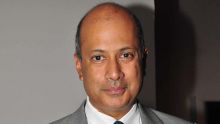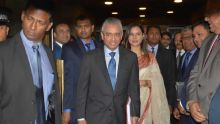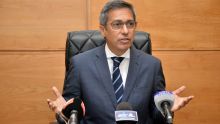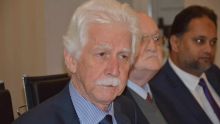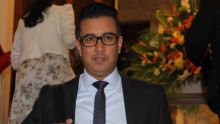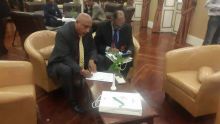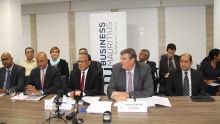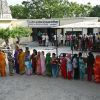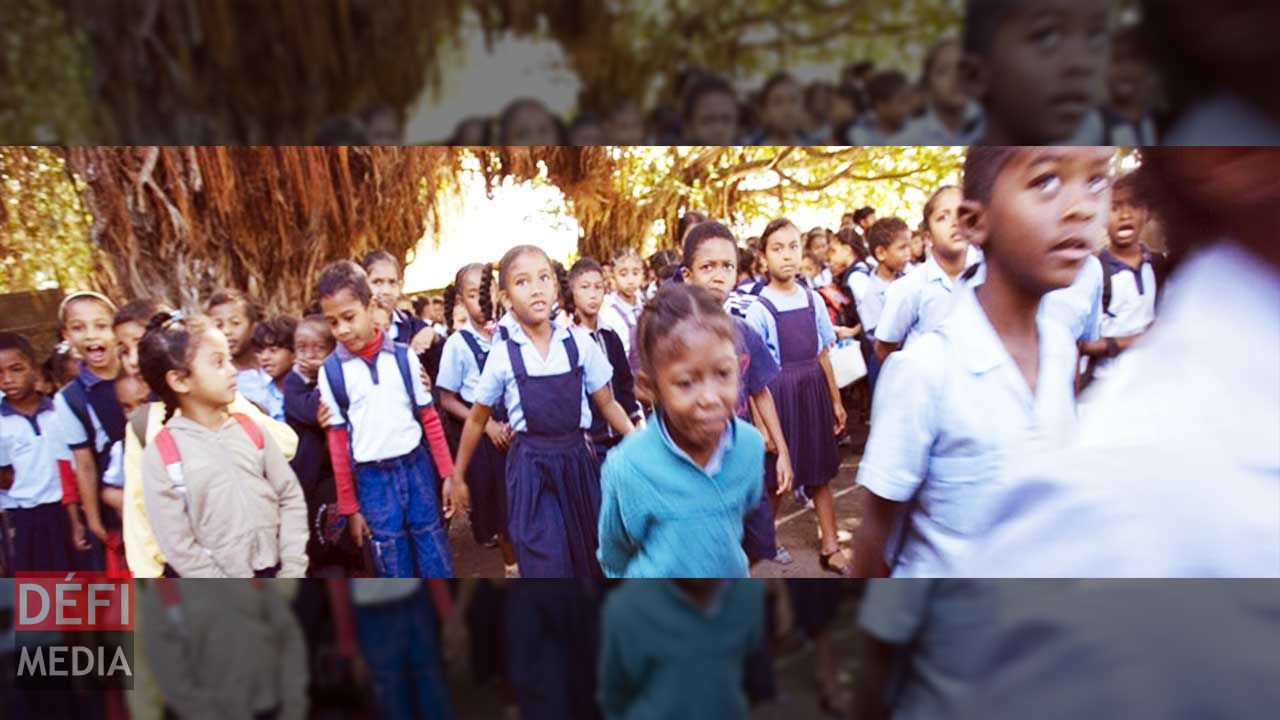
In his recent budget, the Prime Minister and Minister of Finance announced a series of measures for the education sector. While some of the measures have been welcomed, stakeholders in the field feel that some major issues have not been addressed.
Publicité
The budget 2017-18 presented by the Prime Minister and Minister of Finance Pravind Jugnauth two weeks ago has received divided opinions from stakeholders in the different fields. While some measures announced have been welcomed, many feel that the Minister of Finance has not considered several important aspects prevailing.
Among the measures announced in the education field, Pravind Jugnauth stated that Rs 590 million will be dedicated for construction, extension and upgrading of infrastructure in public primary and secondary institutions, there will be provision for pedagogical tools and materials in 125 private pre-primary schools and that there will be an increase in teaching staff namely 184 Support Teachers, 308 Trainee Educators and 250 educators in secondary schools.
The Minister also announced that there will be a 10% increase in the yearly allowance for laureates pursuing post graduate studies locally and a 20% increase in the yearly living allowance for Additional Laureates studying abroad. Furthermore, a New Strategy Paper for the Special Education Needs will be developed and the pilot project under Marshall Plan Against Poverty will be extended to five additional schools. But what are the major weaknesses that should have been identified and addressed? News on Sunday gauged the views and feelings of stakeholders in the field on the measures announced.
The views on the education sector measures
Past Programme Director at the United Nations, Dr Michael Atchia trusts the Minister has announced many standard budget measures which will support our first rank in Africa as the only country to provide free, compulsory, high standard education to ALL, from ages five to 16. “It costs a lot to the country but money in education is money incredibly well spent! The investment for construction or renovation of school buildings and premises is indeed very necessary,” he states. Dr Michael Atchia also welcomes the increase of grant-In-aid to NGOs running Special Education Needs schools to Rs 110 million. “A small measure which goes a long way is the money for NGOs which look after students with special education needs and the development of an authority to co-ordinate that sector. The rights of those with special needs must be fully met, at par with other students.”
Pedagogue and former lecturer at the Mauritius Institute of Education, Faizal Jeeroburkhan says most of the measures announced go in the right direction but they remain quite superficial. He explains that the grant-in-aid to the NGOs “is a long overdue decision to correct the injustice inflicted on our disabled children. He also trusts that the upgrading of educational hardware and infrastructure in training institutions and the financing of the operating costs of our polytechnics “are constructive measures to improve vocational training and to address the mismatch between the education system output and the job market needs.” However, as he states, “they are all short-term and piecemeal approaches.”
Pedagogue Mahen Gungaparsad trusts that there are many “ad effect” measures each year. He says the investment in construction and renovation of school buildings and premises is a good measure but he fears that “given the number of schools around the island, the finance may be insufficient. Will the investment be dedicated to upgrade libraries, gymnasium, laboratories, to install fans in classes? Often much is spent for nothing and it is through the PTA that schools are able to cover their expenses,” he argues.
What were the expectations?
Faizal Jeeroburkhan states that he was expecting “much bolder, proactive and innovative measures that would have enhanced the quality of education and raised the effectiveness of the educational system with regards to the new challenges that lie ahead.” Similarly Michael Atchia is of the view that he was expecting measures such as financial incentives to encourage innovation in the Mauritian population. “Innovation is the lifeblood of any development. It is an invention, as applied to any aspect of life.” For “the value of an idea lies in the using of it” (Thomas Edison, the inventor of the light bulb). The key word here is NEW.” How do you achieve that? “Transforming the country from one of mainly imitators, of importers (of manufactured goods, of expertise, of ideas and fashions, of music and films, etc) to one genuinely creating new product, launching new ideas, new sustainable life-styles,” he explains.
At school level, he adds “the new national curricula under Nine-Year Continuous Basic Education does that to some extent, reinforced by money for more teachers, better facilities, holistic education under the Education Budget allocations. Some key concepts and pedagogies, for which some in Mauritius have expertise, must find their way into all schools. Such as learning by doing, experimentation (trialing / finding out / investigating), a spirit of innovation, developing a “scientific temper”, design-based approach, problem solving approach to the teaching of science etc.”
Michael Atchia believes that at university level, “we must encourage those with master’s degree and doctorates to do applied research, to go into entrepreneurship, to be given financial support to create start-ups.” Moreover, he underlines that the most important Budget measure is the creation of Mauritius Research and Innovation Council to finance and encourage research, especially in science and technology in universities and the private sector. “A very courageous measure when we know that the RESULTS of research (crucial for Mauritius of tomorrow) will be visible only after two, five or 10 years, not during this budget year!” he underlines. He says there is the need for a “bi-annual budget (a Budget for two years) which would reduce all the work needed yearly for developing a new budget, but ALSO, with two years, more time for full implementation.”
On his side, Mahen Gungaparsad says that he expected to see other measures on the Nine-Year Continuous Basic Education. “We have heard nothing on it. We also expected measures on the development and implementation of new pedagogies and also on the curriculum itself. There is the need for different pedagogies in order to cater for our different learners, for example our special needs learners or slow learners. Moreover, measures on remedial education were expected,” he says.
Three-year Strategic Education Plan (2017-2020)
Moving towards 2030, a key goal is to ensure inclusive and equitable quality education whilst promoting lifelong learning opportunities for all. All learners will be equipped with knowledge, skills and right attitudes for future learning, their personal well-being as well as future employment. Improvement of teacher quality and the enhancement of innovative learning environments will accelerate the acquisition of deep skills to face the 21st century challenges. Further, to position Mauritius as an education hub, higher learning opportunities will be expanded, alongside a renewed focus on research and innovation. By 2030, all students will complete secondary education whether General or Technical. The tertiary enrolment rate, which was 47.4% in 2015, is targeted to increase to 50% by 2020 and 60% by 2030.
 Current situation
Current situation
Education is one of the key growth enablers of socio-economic development. Government spending on education has averaged 3.4% of GDP during the past few years. In 2015, nine out of every ten children aged between 11 and 17 years were enrolled in general and pre-vocational secondary education.
Around 15% of a cohort sitting for the Certificate of Primary Education Examination did not reach the required level to pursue general secondary education and were channeled to a prevocational programme. Of these, one quarter would not make it to the end of the programme.
Children’s inability to acquire the minimum level of education explains the widening literacy gap between the better educated and the rest of the population which results in unskilled and lowskilled labour, unemployment and rising inequality.
Changing technology and reengineering of the workplace pose challenges to the continuous improvement of the quality and relevance of Technical and Vocational Education and Training (TVET) programmes. The curricula need to be reviewed systematically and more regularly to respond to the growing skill needs of industry today and the requirements of emerging economic sectors.
The higher education sector is being called upon to emerge as a strong pillar of the economy. It accordingly requires profound and transformative changes with innovation, entrepreneurship and competitiveness being central to that change. The reforms currently underway in the higher education sector centre on:
- Review of the legislative framework to put in place a robust quality assurance system;
- Partnership with industry for curriculum and pedagogical reform with emphasis on training for innovative thinkers;
- Promoting entrepreneurship training; and
- Emphasis on research of national relevance.
In view of the current situation, the key challenge faced by the Education and Training sector is to uplift the quality of the nation’s human capital and the relevance of the education and training system by:
- building the foundational skills that will guarantee success in all future learning;
- developing a generation of young adults with deep learning skills for the 21st century; and
- designing technical and tertiary education programmes that prepare students to become productive employees and innovative leaders.
Strategic Direction
Rolling out the Nine Year Continuous Basic Education Reform: The focus will be on quality basic education for the consolidation of foundational skills and holistic development of learners, thus preparing them for upper secondary schooling.
Introducing E-learning platforms that will serve as a powerful lever to accelerate and enhance student learning with the acquisition of higher-order skills. In addition, E-learning reduces reliance upon private tuition. Digital learning contents will enable students to study at their own pace after school hours.
Developing a Special Education Needs (SEN) Strategy with the aim to achieve full inclusion of all learners, irrespective of their disabilities, by creating and providing a disability-friendly environment commensurate with their specific needs.
Rebranding TVET: A TVET Strategy will be developed to focus on implementation of a new framework for TVET with focus on review of training programmes and strengthening of capacity building.
Strengthening Higher Education: The shift from middle to high income economic status of Mauritius will necessitate transformative changes in the higher education sector. The diversity of offerings, both programmatic and institutional will necessitate a properly regulated higher education system with strong emphasis on quality and relevance.
Polytechnic Education will provide a new and attractive pathway for the development of advanced technical skills as well as training at the middle-management level. The involvement of industry in programmatic conceptualisation and delivery will guarantee relevance and employability.
What should be the priority and which issues have not been addressed?
Dr Michael Atchia argues that there is the need for a much stronger yearly commitment, with financial support, for accelerating the transition to renewable energy. “The worldwide crunch will come sooner than later and countries not fully prepared (such a small, isolated island states like Mauritius, Reunion, Seychelles) will be left out. So each year’s Budget must make provision for moving towards energy and food independence,” he says.
Faizal Jeeroburkhanwonders whether we are getting value for money through the billions of rupees injected in our free education system. The pedagogue also trusts that there are basic issues that the budget should have addressed. “It should start with in-depth auditing of the whole educational setup followed by the formulation of a comprehensive master plan for the way forward,” he states.
“The problems of indiscipline, violence, substance abuse, absenteeism etc. are posing a serious threat to our school environment. Private tuition, a parallel education system with an annual turnover of about Rs 4 billion, is an unnecessary burden for both students and parents and is vitiating all attempts at reforms. The curriculum, the pedagogy, the evaluation system and the school administration both at the primary and secondary levels are outdated and call for a comprehensive rethinking. These are some of the issues that have not been addressed in the budget and that demands immediate attention,” states Faizal Jeeroburkhan.
Mahen Gungaparsad also shares a similar point of view. The pedagogue argues that the problem of indiscipline needs major attention. “What is the government doing to equip our teachers, school administrators and others to face this problem? For example the government should invest in the installation of surveillance cameras in the school yards. Many schools still do not have these. Furthermore, more incentives should have been given to private schools as their structures differ a lot from that of state schools. Private schools welcome a great number of students with difficult backgrounds.” The pedagogue also adds that there should have been investment measures in the training of teachers. “Hiring teachers is very good but the constant training of the teacher is best. Teachers should be updated on the new developments in the sector and in their subject areas.”
Mahen Gungaparsad argues that it is high time to put a stop at the ‘one size fits all’ education system. “It is high time to review our system and the curriculum. It is time for pedagogic revolution. We must cater for our different learners and empower them and the development of various skills.” He also trusts that emphasis should be laid on communication skills development and value education.
“How can education be holistic when the curriculum is compartmentalised, when the pedagogy favour cramming, when the text book is the “bible”, when teachers focus on exams, when extra-curricular activities are banned, when evaluation tests only the capacity to reproduce passively acquired knowledge and when competition overrides team work. Unfortunately, holistic education will remain a pious wish if the means in terms of funds, infrastructure, properly trained personnel as well as research and development are not marshalled and made available to the actors involved in the system,” states Faizal Jeeroburkhan.

Notre service WhatsApp. Vous êtes témoins d`un événement d`actualité ou d`une scène insolite? Envoyez-nous vos photos ou vidéos sur le 5 259 82 00 !













